MEET A FARMER
Black Dirt FARM Collective
Healing and liberating with the land
Imagine a world where black people are free. It’s a simple exercise, but an enormous task, in part because racism is deeply entrenched in the bones of our institutions. The vast and old history of structural violence directed towards Africans and their diaspora communities across the globe is essential context for appreciating a vision as bold as black liberation. This is the vision that has guided Black Dirt Farm Collective (BDFC), gradually and deliberately for the past decade.
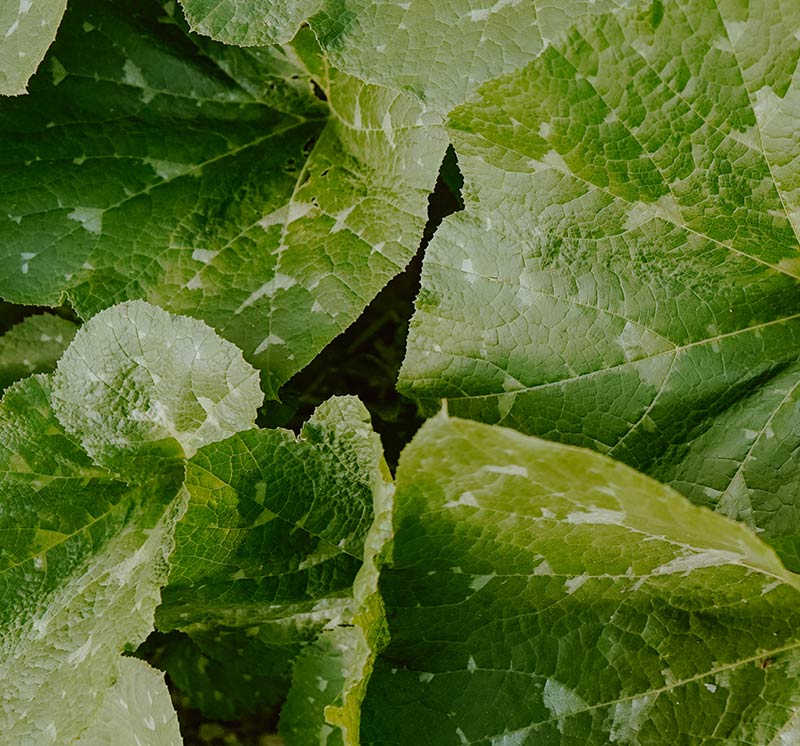
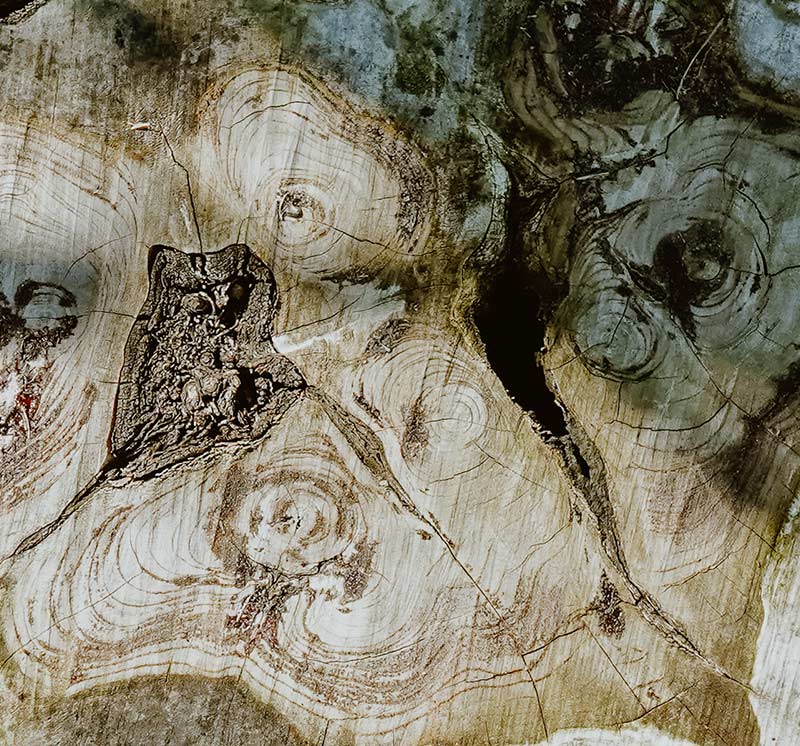
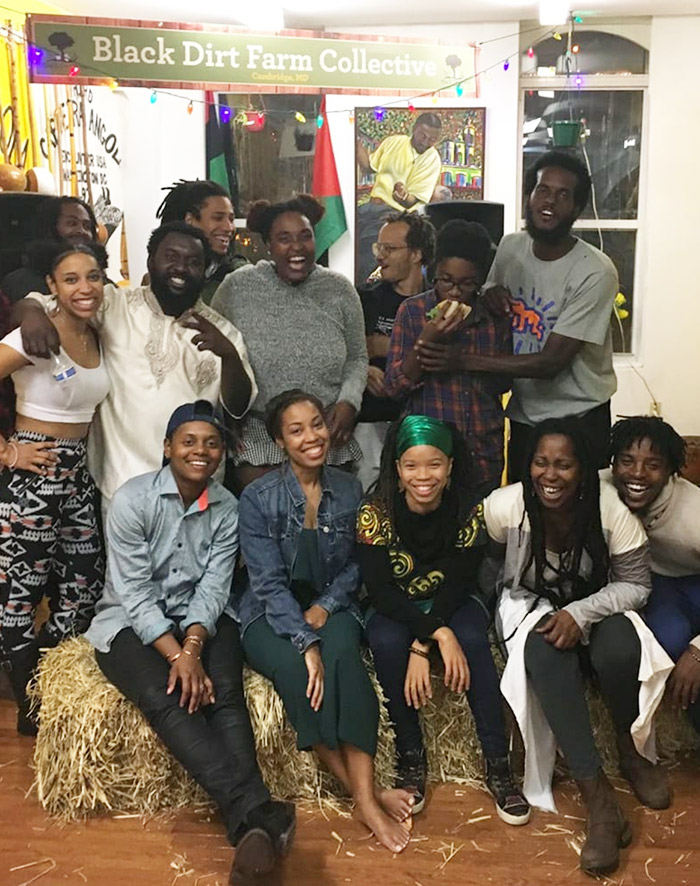
Around 2012, a group of black activists and agrarians with ties to the MidAtlantic region came together around common values and hopes for their communities and their relationship to the land. They eventually formed the Black Dirt Farm Collective, whose dozen members are black farmers, builders, educators, scientists, agrarians, seed keepers, organizers, and political educators. Drawing on collective expertise from numerous projects and commitments to food justice hailing from initiatives such as Detroit Black Farmer Land Fund, Soilful City, Five Seeds Farm, Earthbound Building, Three Part Harmony Farm, South Eats, Black Urban Growers, Seed Keepers of Color, and Soil Generation, BDFC is allied around a shared sense of transformative purpose in agroecology.
Agroecology is well known outside of the United States, perhaps for the ways it steps beyond justice—a restorative concept, towards food sovereignty—a concept that inherently challenges how the monopolized market driving our food system works. According to Xavier Brown, one of the collective’s founding members, the novelty and possibilities that agroecology offers as a framework for growing healthy, vibrant ecosystems and communities is what brought BDFC’s founding members together. What began as informal meet ups and dialogue evolved into more intentional invitations to gather and organize around common goals and values, and exchanging knowledge with like-minded food folks of varying backgrounds.
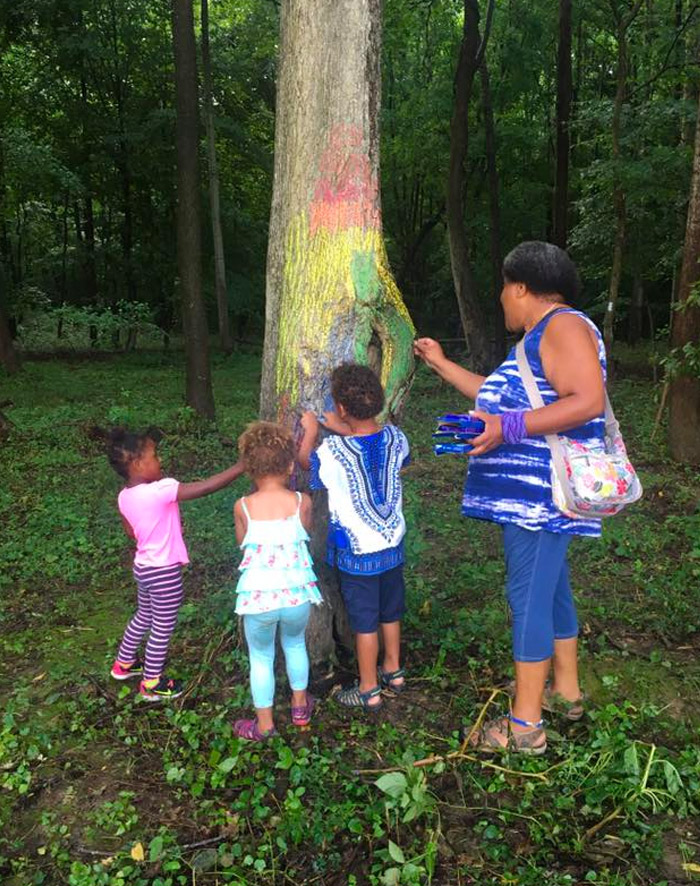
Black Dirt a small spoke in a larger wheel in black agrarian culture…we have a reputation of being people who take care of each other.
BDFC hosted the First Annual Mid-Atlantic Agroecology Encounter in Eastern Shore, MD in 2016. Over time, the BDFC has come to represent an Eastern Shore/ Mid-Atlantic node in a global food movement of black agrarians—from across Africa, to Cuba and Puerto Rico, including groups like Boricua in Puerto Rico, the Landless Workers Party in Brazil, Alliance for Food Sovereignty in Africa, and La Via Campesina in Central and Latin America. They are building across regions and seas.
Xavier Brown, who grew up in Washington, D.C., leads and contributes to a number of urban and rural agricultural projects, including Soilful City, an initiative that uses urban agriculture and African diasporic cultures and traditions to foster healing, wellness and connection within black communities.
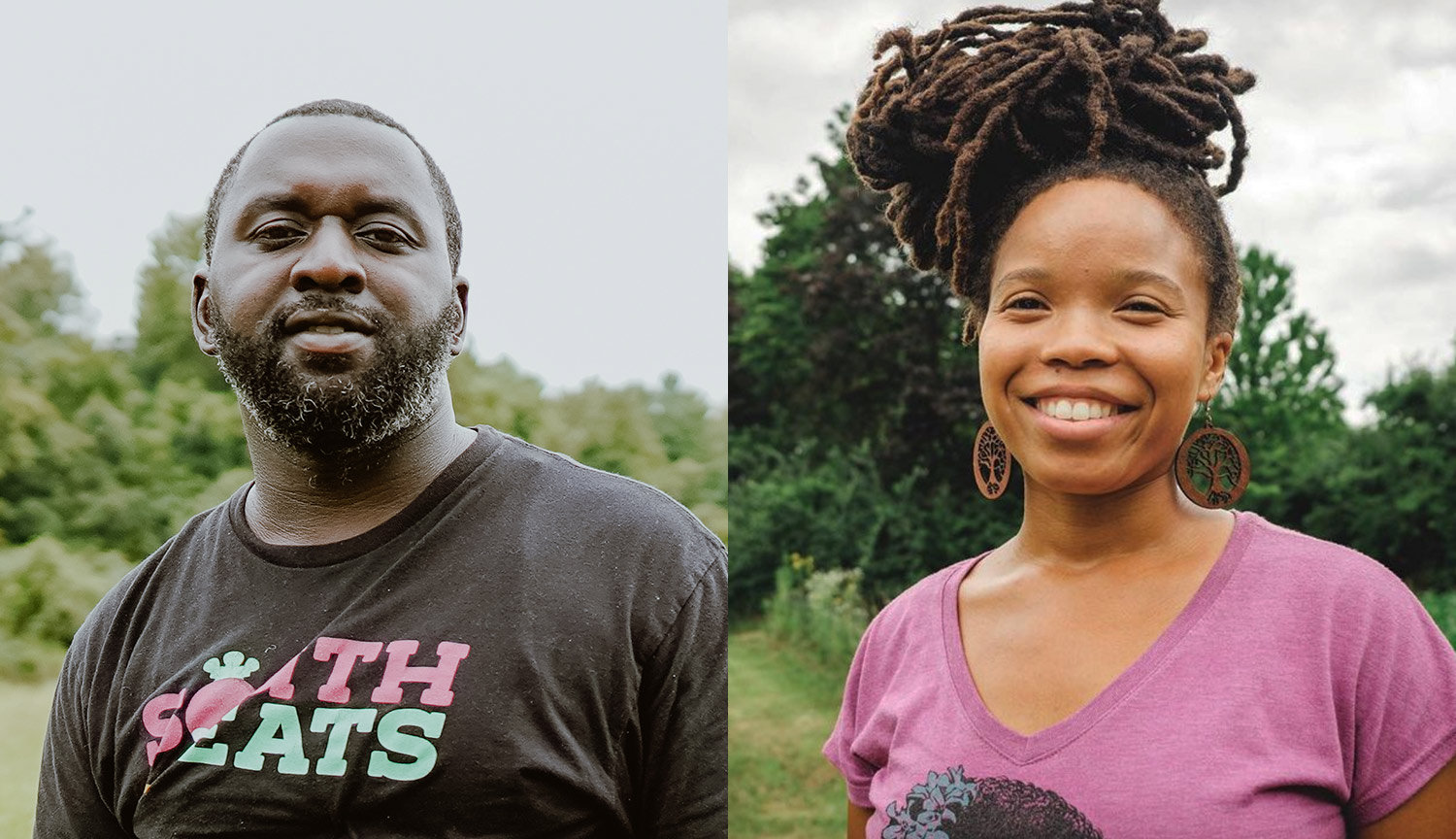
in which 98% of rural land is owned by white people
– Source— reflect the dominant values that have guided the gradual evolution of farming into the institution it is today; one that farmers across America continue to challenge and reclaim.
The conditions of the agro-industrial food system in the U.S. today involve laborers enduring harsh, dangerous and indignifying conditions, and very low pay; toxins that harm humans and the environment are commonly used to regulate growth; and 98% of rural land is owned by white people. These conditions reflect the dominant values (born of racialized capitalism) that have guided the evolution of farming into the institution it is today; one that farmers across America continue to challenge and reclaim.
– to place, between and across species— and implies an understanding of communal wholeness. A thriving whole community is made of up composites, each serving a specific function that feeds into another, an interdependent life cycle. We can see that reflected in the BDFC members, who represent a range of skills and expertise, even though they are all growers in some capacity.
Most of us are descended from agrarian cultures and societies. Before property became an essential pillar of the Eurocentric nation state, humans existed largely as agrarians, knowing the cycles and shifts of seasons and place intimately, growing enough to subsist. The identity “agrarian” is as much a remembering as it is a choice to uphold these lineages, in turn honoring the orientation towards land that they carry. shakara explained this ancestral connection:
Broadly speaking from a black agrarian lens, regenerative farming is an act of revolution because it is a remembrance of our ancestral pathways.
“We are reinvigorating what it means to be black on this earth… We rebuild our connection through memory, culture, political identity, we grow our ancestors along with us in this current day. This is an ancestral practice.” For BDFC, tending the earth with care also means to return to practices and understanding of the sacred.
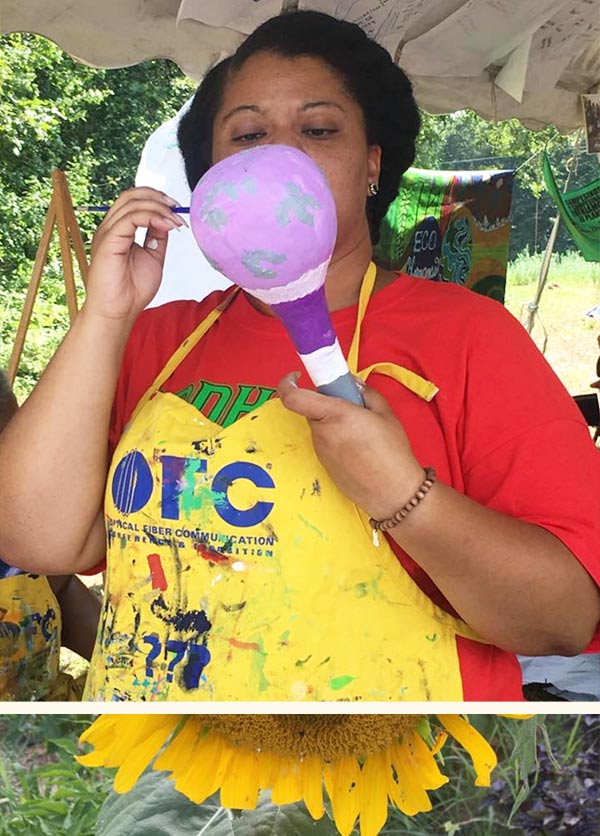
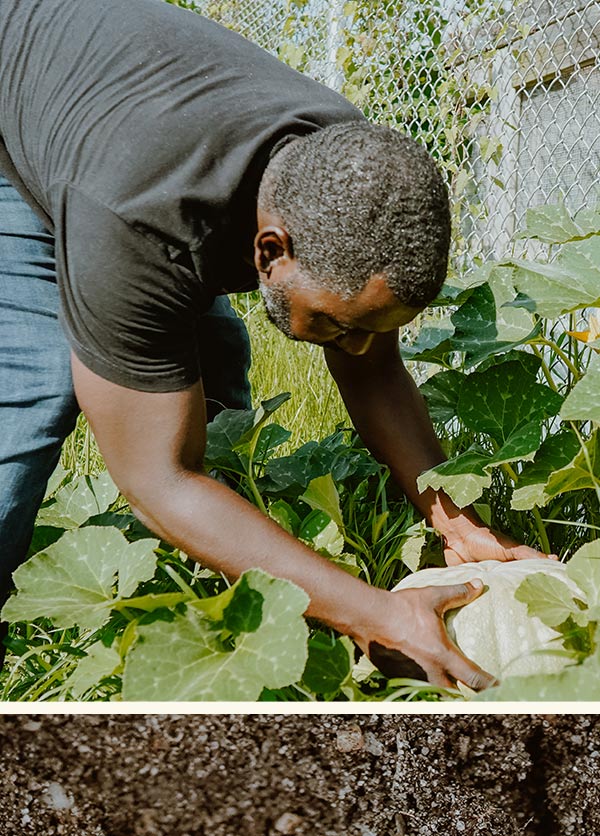
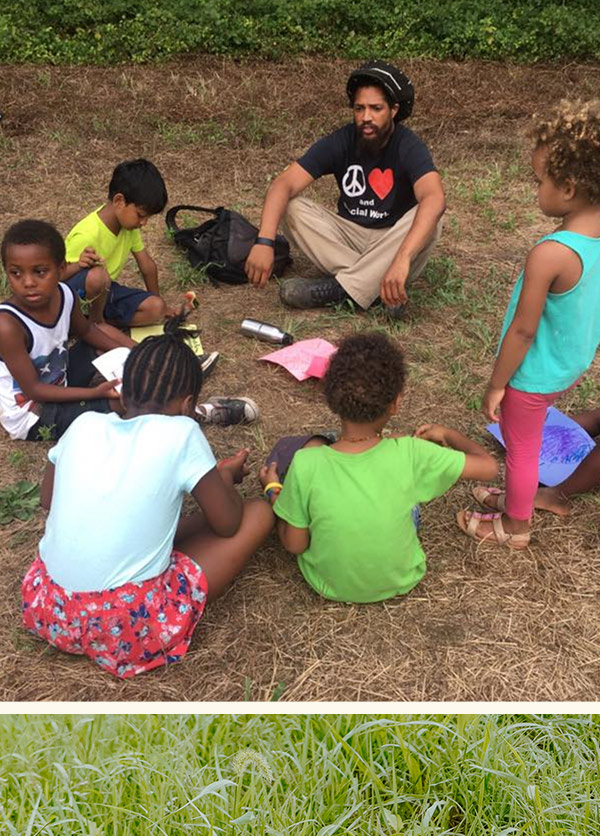
To address the needs of black families in the U.S. today, several years ago the collective began to envision shared land as a space not just for cultivation but for healing. Xavier wants to continue gatherings and exchange between folks of color in the food sovereignty movement, to learn from each other, cross pollinate, and connect. “We want the land to be a spirit place where folks can feel safe, accepted, welcome, and not just feel free but be free. And we believe that building community in the countryside is a huge part of that. As cities become more and more unlivable due to the obscene policies, there’s more room to build out the reality that we know can be true in the countryside compared to the city.”
That’s really the vision: to have a safe haven, a cultural reservoir, where we can retreat to.
But for historically racialized and oppressed communities, economic and political conditions frame spiritual possibilities, informing how we manifest our visions. Despite their clarity of vision BDFC remained landless until 2020. It was not easy to arrive at a place where the dream of land ownership could become real, which is the brutal reality of most black farmers,
Who make up only 1.4% of the farmers in the u.s. TODAY
— compared to a national peak of 14% — one million–in 1920. Even in the midst of a growing movement within black communities to reconnect to land, the majority of black folks — like Native and indigenous communities– have been forced into precarious situations when it comes to land ownership.
The timeline of gradual but systematic exclusion of native and black folks from farming and land ownership highlights the urgency for initiatives like the BFDC. The industrial revolution decimated farmers across race who could not afford costly inputs and machinery and resulting price decreases from increased yield. But as a racialized power landscape, farming was no exception to the social norms of the New Deal era: farm subsidies and federal support reflected dominant white attitudes about growing demands for civil rights and opposition to Jim Crow standards. USDA programs and government aid consistently favored white farmers, resulting in the gradual but steady pattern of black-owned farms defaulting, declaring bankruptcy and selling. White farm owners were able to penalize their sharecroppers who voted or engaged in the growing civic activities of the time, leaving them without work.
This is the social economic background that contributed to the Great Migration of black agrarians to the North. Moreover, this history explains the racial disparities in land ownership. Even though most of the millions of farmers who couldn’t survive the shifts to industrialized agriculture were white, so were the buyers of their farms. By the mid-1960s, only 6% of farm owners were black; reduced to just a fraction of that today. In addition to producing the complex harm of displacement, this violent dispossession of black agrarians from the only land they’d known was a driver of racial land ownership disparities. Each step of the way, black agrarians have resisted, organized, and demanded more. The Black Dirt Farm Collective continues this legacy.
The obvious fact that America’s founding capital was produced by black agricultural labor centuries ago harshly juxtaposes the near absence of state-based structural conditions for black land ownership today. As black farmers and activists demand justice for a long history of disenfranchisement through legislation like the Justice for Black Farmers Bill, they are still met with backlash.
Applying a restorative and reparative framework to any group of black farmers seeking to inhabit and grow on land today would imply reparations. So buying land wasn’t the BDFC’s first choice, and understandably so.
But, how long could they wait? In 2020, an opportunity arose for the collective to purchase 24 acres in Marlboro, Maryland, a place of their own in the Eastern Shore region where they’ve anchored their organizing work over the years.
Visiting the land offered the confirmation they needed. “I feel like we belong there… a place where we can seek our fullness and be the magic our ancestors demand we be,” said shakara. There, she felt transported to “an Afrofuture where black life and black joy can flourish in their rawness.“ With support from grant funding programs, they decided to take a mortgage on a plot of land that they felt deeply connected to.
It is worthy of celebration that the land BDFC finally acquired was owned by two generations of black families, the sellers choosing BDFC over other, higher bidders. The former owners were compelled by BDFC’s vision, by the prospect of being able to pass the land on to a third generation of black stewards, offering them a much-anticipated permanent space to grow and nurture their vision. Drawing on the strengths of each member, BFDC is developing the land into a sanctuary space that will also function as a residential farm, a small business incubator, and a home for the agroecology movement. The land will undergo several phases of development, but this past year has been about settling into the site with intention and reflection for what comes next.
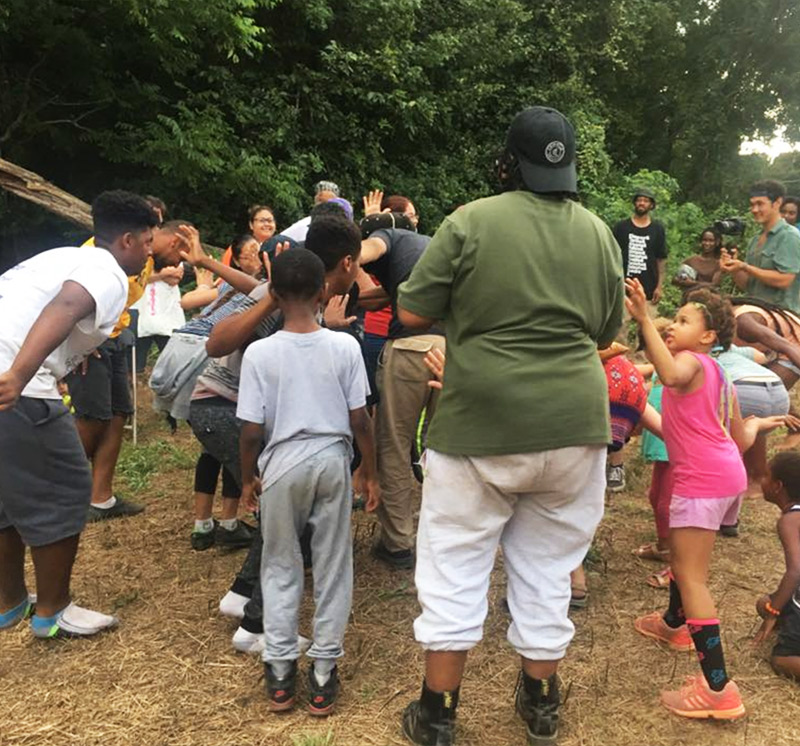
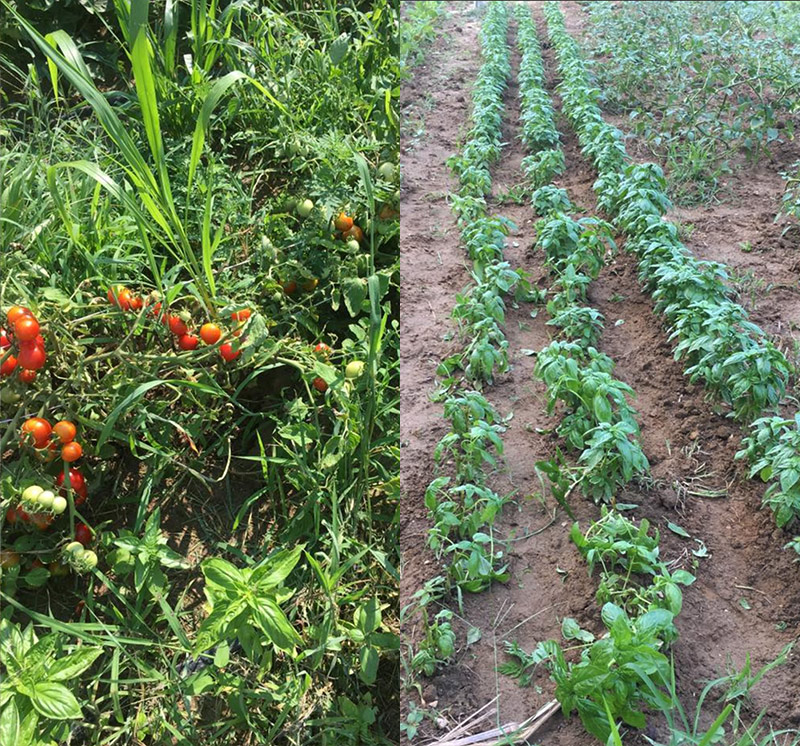
Moving through the process of land acquisition and development as a collective is unique, a direct challenge to the white supremacist blueprint of individual land ownership, whose origins are deeply rooted in colonial systems of control and extraction. Collective ownership disrupts those templates, expanding the possibilities of new modes of farming.
What does it mean to farm in a liberatory way? Liberation seeks to transform the status quo we have inherited. But the end game is different, too. Choosing to center process over outcome, share decision making, emphasize dialogue, and uplift the health and wellness of black people has allowed BDFC to co-create from a place that imagines freedom where history shows us oppression.
It starts by looking within.
Liberation is not [just] about working towards a different reality, it’s also about removing the little piece of the oppressor that has been suppressed inside of us,
per Audre Lorde’s black feminist ideology,” shakara explained. Bringing attention and care to individual healing has allowed members to evolve alongside their collective, emphasizing personal transformation to arrive at collective liberation. This intentional space holding has been made possible by the accompaniment and wisdom of self-identifying black women who lead the BDFC. Men play important roles in the collective, and thriving families and communities are at the core of its purpose. This allows the black femme to color all aspects of how they exist.
Another pillar of Afroecology is shared leadership, which upholds the importance of many intersecting experiences, choosing not to appoint a singular leader, but rather share goals and decision-making power equitably. Shared leadership celebrates differences: of expertise, craft, and skill, but also of interpretations and lived experiences. The choice for shared leadership is a choice to resist the colonial idea that we must all think uniformly, and rather insist on multiple ways of being, thinking, and living as possible and essential to a certain freedom.
If leadership is shared, then necessarily another tenant of the collective’s praxis has been staying open through conflict. In order to move together, BDFC practices moving through tension and conflict, embracing vulnerability and discomfort and eventually composting both, allowing them to feed their individual and collective growth. Xavier remarked on his own personal growth around navigating conflict.
The journey has been rich, it has been more fun, doing it together than doing it on your own.
Having land expands collective possibilities. Already, there are opportunities to gather in the movement community – both shakara and Xavier speak sincerely of how both the land and lessons that come with it equip the collective with tools to share with other groups walking this path. It is not fast work but it is soulful work– and one wonders if humanity can afford to move forward any way other than a soulful way as it pertains to land.
Moving at the pace of the collective towards their vision, shakara and Xavier reflected that this next phase of slowly making the land inhabitable will take time and a lot of work, and there is ample room for support. On their radars are several immediate needs to make the land inhabitable enough to house visitors and community members, like a few tiny houses, wiring electricity, and building a functional well. A food production business is in the works, as well as a woodshop for natural building– which will be the economic engine of the Marlboro sanctuary.
Capital is perhaps the BDFC’s most urgent and timely need. Through their upcoming capital campaign, they hope to subsidize their mortgage through crowdfunding as much as possible.
Reducing the burden of the mortgage through donations and collective giving will allow the group more flexibility to invest in land infrastructure. Of course, there are other pressing and practical needs: a tractor in good shape, short-term living structures like yurts that can house people, and farm tools. And the inevitable: labor. BDFC would love to host as many people as possible for volunteer days, because as shakara said “that sweat is what actually moves the work.”
This collective is working to ensure that future black generations will have a world to live and breathe in. What stood out to me the most as I reflected on my conversations with shakara and Xavier was how many things outside of growing need to happen in order for black folks to find healing and freedom on land. We can look at agroecology as a way of life, an ongoing practice, informing how people move through the world. And from that prism, the Black Dirt Farm Collective is tending the interdependencies of black folks and the earth as it invests in land-based spaces of communion. As Xavier spoke to me of instruments, drums, fire circles, I recalled the fire circles I’ve sat in, and the soft calm I’ve felt in those moments. I remembered that when we allow cycles of resting and slowing down, we can grow anew.
The way I look at it is we become an extension of the land right? A lot of the things that come through us are coming through the land.
You can support the Black Dirt Farm Collective’s Afroecology Village by donating here:
Follow Xavier, shakara and the Black Dirt Farm Collective:
This piece was written by Stephanie Yawa de Wolfe, a member of our Circle of Creatives. Steph is a Togolese American advocate of food and land sovereignty. Her upbringing in several African countries informs her solidarity with agrarians in the food sovereignty movement across the globe. On her Togolese side, Steph comes from a long lineage of Akposso (an indigenous tribe) small scale farmers and herbal medicine practitioners. This heritage taught her that food is an important modality for storytelling, healing, and community building.
